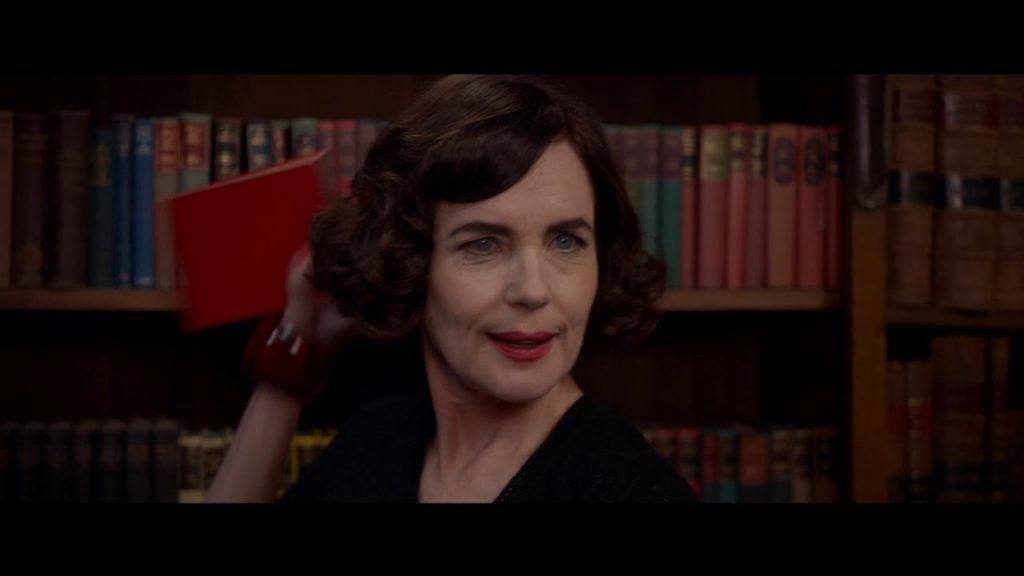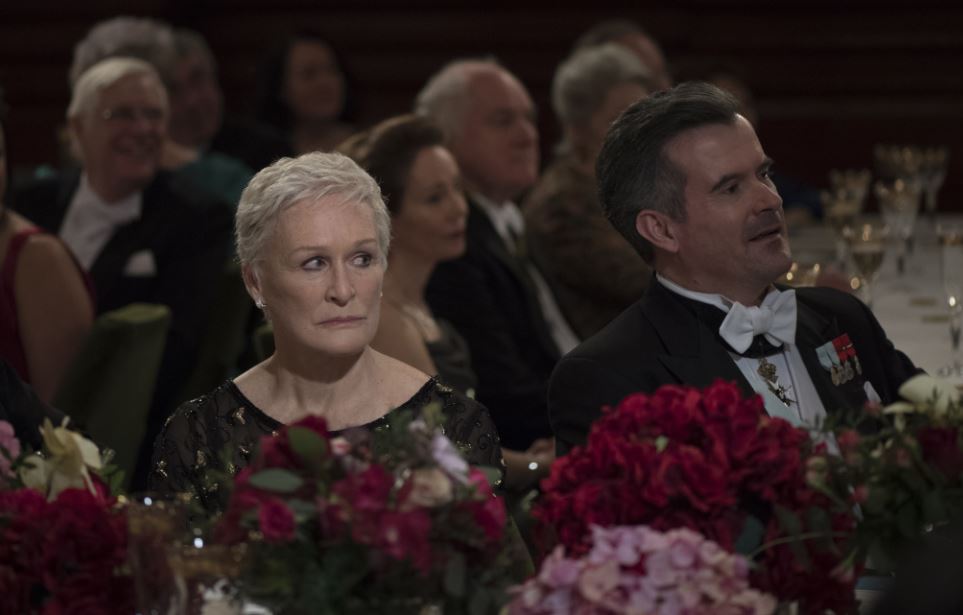Posted by Parth Pant
In her seminal essay A Room of One’s Own, Virginia Woolf made a compelling statement about the personal and economic independence of women writers, “A woman must have money and a room of her own if she is to write fiction.”
Joan Castleman, the protagonist of recently Academy Award nominated, The Wife, is a woman fulfilling both the requisites that Woolf claimed about. Joan is a college co-ed with a room (of her own) and a menial job in the year 1958. She is also an unnervingly talented writer who greatly impresses her professor Joe, who ends up marrying her. Fast forward to 1992 – her husband is set to receive the Nobel Prize in literature.
Joan is in her sixties, a loving wife holding her husband’s coat, telling him about his bad breath and removing crumbs from his beard. So how did a potential writer turn to a dutiful wife? Is it just the story of a sacrifice or is a much deeper intellectual snobbery at play? That is precisely the question The Wife seeks to answer.
The Wife starts with an elderly couple Joan and Joe Castleman (played phenomenally by Glenn Close and Jonathan Pryce) receiving a call from the Nobel Prize committee. The committee has decided to award Mr. Castleman for his brilliant prose work. As Joan listens from the other end, her reaction is a mix of shocking happiness and a certain scepticism. From there begins The Wife – a riveting domestic tragedy about marriage, betrayal, and more importantly about the agency of female writers in a male dominated canon.
While the film deserves a watch for Glenn Close’s performance alone, it is also a thought-provoking look at women compromising their talents in a patriarchal world. In the film, we journey with Joan who has accompanied her husband to Sweden for the Nobel Prize ceremony. Initially what starts as a look into a happy-perfect marriage soon dissolves, as secrets are exposed, culminating into a startling revelation. Did Joan stop writing because of commitments that are required in a marriage or is there more to the picture than it seems? All these questions are further complicated as the film ventures back into flashbacks.
As a man, Joe can write and propagate such romantic ideas because once he writes, he will no doubt have a readership. Joan, too, naively inherits these ideas.
We learn that in 1959, Joan had been a student in Joe’s class. She is encouraged by her professor who praises her succinct and delicate prose. Joan also internalises the idea of ‘the artistic vein of a writer’ as Joe once tells the class, “A true writer does not write because he wants to be published. He writes because he has something urgent and personal that he needs to say.”
Also read: 9 Empowering Netflix Documentaries On Women Around The Globe
Joe’s above quoted statement has arisen out of a natural privilege – the privilege of being a man. As a man, he can write and propagate such romantic ideas because once he writes, he will no doubt have a readership. Joan, too, naively inherits these ideas. This hunky-dory picture is shattered when Joe takes her to meet Elaine Mozell (played by Elizabeth McGovern in a brilliant cameo).
Mozell is a writer who has been dubbed ‘bold’ by her male contemporaries. When a young Joan meets her, Mozell tells her to stop writing because no one would ever take her writing seriously because she is a woman. She, in an impassionate tone, tells Joan that it is men who decide who gets to be taken seriously and who is not. That Mozell, as a female writer, would give this advice to an aspiring author is far from inspiring. But this, in short, is a clear cut representation of the literary canon dominated by a white male aesthetic ideology where the men have a complete say into which is ‘great’ and what is not.

In one of the film’s most thought-provoking scene, a young Joan says rather passionately, “A writer has to write.” Elaine gives her a befitting reply with a sympathetic look, “A writer has to be read, honey.” For a woman, before the second wave of feminism, being published is no less than a herculean task and one can only have such starry-eyed notions of writing when one envisions that at least someone will read his/her work.
It is not uncommon to find phrases like ‘women’s writing’ or ‘queer literature’ – the problem is not with the classification but with these genres being treated as different from the canon.
Even Joe who has propagated this idea to his students, later seems eager to receive the Nobel Prize and all the perks that come with it, thereby exposing the underlying hypocrisy of male writers. The Wife also has further layers, which this article cannot explore without spoiling the plot. Nevertheless, before its big revelation, the film makes several compelling arguments.
Women’s writing have always have had their share of challenges and dilemmas, which continues to this day. Early women’s writing were frowned upon which led many female writers to alter their names or simply put before their works ‘written by a woman’ (Aphra Behn and Jane Austen’s initial works were published as such). Writers like Mary Anne Evans had to take the pseudonym of George Elliot to prevent from being stereotyped. Even in the 21st century, the problem is far from over although the male canon slowly is becoming inclusive after revisions and revisits.
However, it is not uncommon to find phrases like ‘women’s writing’ or ‘queer literature’ – the problem is not with the classification but with these genres being treated as different from the canon. Erin Spampinato, a scholar-writer, aptly points this out, as she compares women’s writings in America to other canonical writings, “Novels of women’s frustration with society – not sex – like those of Edith Wharton and Kate Chopin, are classed as special interest pieces: feminist fiction or women’s fiction, not Great American Novels.”
Also read: Roma: An Achingly Strong Tale Of Two Women
The Wife, thus becomes a necessary look behind female potential hindered by societal norms. When, Joan in the film, is asked about her occupation, she replies, “I am a kingmaker.” This is not an empowering statement but rather a pitiable one, which reduces women to mere pillars of their husband’s success, as they themselves fade in the background.
Parth is a literature student trying to find meaning in life with books and movies. You can follow him on Facebook.
Featured Image Source: Vanity Fair
About the author(s)
Guest Writers are writers who occasionally write on FII.




